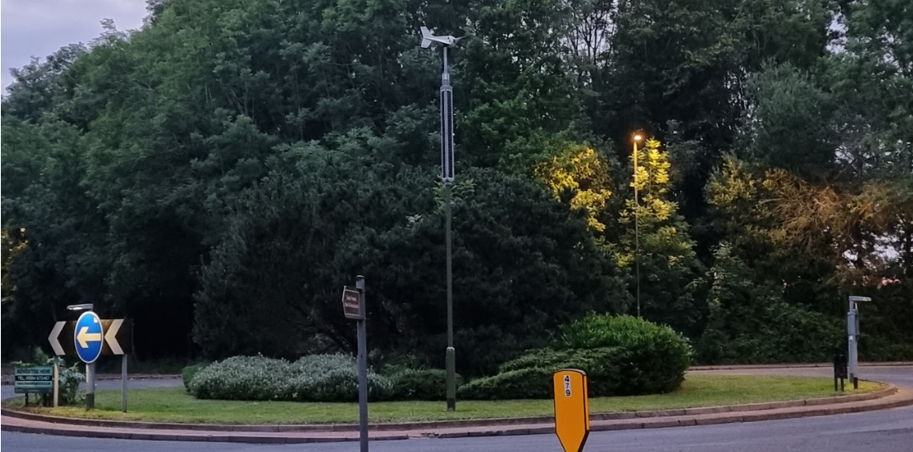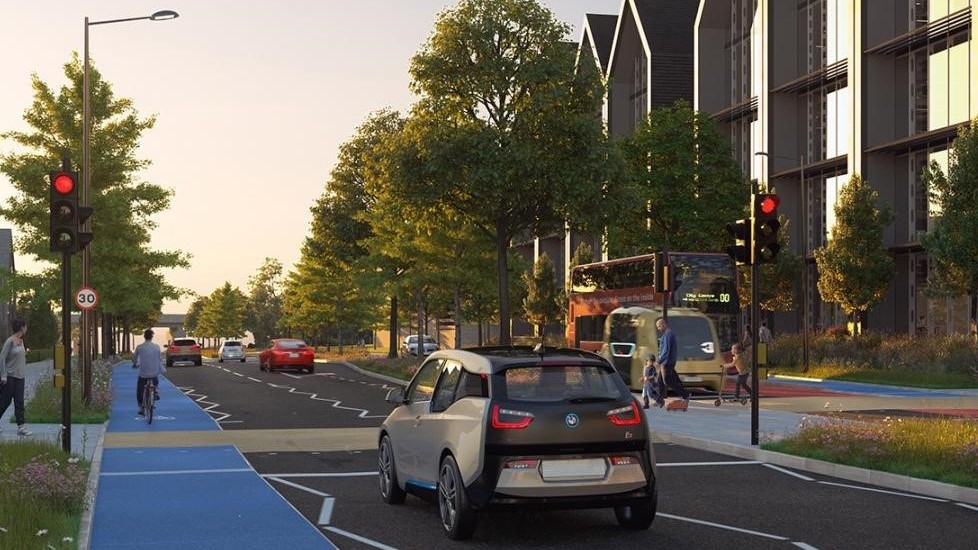A partnership between Hampshire County Council, Milestone Infrastructure and specialist recycling contractor, OCL, has invested in a new purpose-built recycling centre for Hampshire Highways’ road materials.
The plant in Micheldever is being used to provide the means to reprocess and recycle material generated from road repairs, for re-use in road maintenance, leading to reduced carbon emissions, costs, and travel miles.
Cllr Rob Humby, Deputy Leader and Executive Lead Member for Economy, Transport and the Environment, said: “This is a huge advance in how highway maintenance will be carried out across the county - one of the largest areas of work the County Council delivers for Hampshire residents and businesses.
“Bringing back in to use material taken up from Hampshire roads during repairs, processing it cleanly and quietly, and then re-using it elsewhere on the local road network is a fantastic step forward for us - both in terms of maintaining the 5,500 miles of roads and footways we’re responsible for across Hampshire and also reducing our carbon footprint which will help us to achieve our climate change goals. I can also foresee the facility’s potential to enable and encourage more sustainable construction techniques across the wider highway maintenance and civil engineering sectors.”
Matthew Riches, Operations Director for Milestone, commented: “The investment in this recycling hub will put Hampshire County Council and its partners at the forefront of sustainable highway construction. We are using materials recovered from the highway as part of our surfacing and road repair programme and binding them with new cements and asphalt to prepare them for re-use in the carriageway. This enables us to use the aggregates from materials that are already in the local road network and eliminates the need to quarry or excavate virgin product from the countryside, all of which has a hugely positive impact on carbon reduction.”
Within 12 months, the Micheldever facility aims to deliver a net reduction in the use of virgin aggregates, and some warm and hot mix traditional asphalts can be replaced with cold lay materials. There will also be a reduction in the total miles travelled for material supply. The new facility will also facilitate the recycling of tar bound material which would otherwise require specialist and expensive disposal.
The recycled material is laid cold which means specialist insulated lorries are not needed to collect and deliver the material, and there is no waste from unused material which can be used elsewhere. The cold recycled road surface uses about a fifth of the energy of traditional materials and saves 40 per cent in CO2 emissions.
It is anticipated that up to £320,000 per year could be saved for the County Council through the reduction in highway construction costs.
The site itself has also been recycled, having previously been an asphalt plant up until the late 1990s. The depot has been fully refurbished and brought up to modern environmental standards. The latest technologically advanced plant and equipment has been brought in to produce the recycled products, and a significant amount of material that had previously been stored on the site, over time, has been recycled during construction of the new plant.
To meet Environment Agency (EA) requirements, a new sealed drainage system also had to be built. The system is capable of holding all the water for a one in 100-year storm event, with an additional 40 per cent capacity to cope with future climate change impacts.
Back to all

